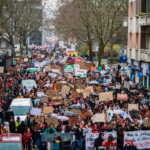Why Is Chancellor Urging Support for Winter Fuel Payment Cuts?
Calling on Labour MPs to back her proposal to cut winter heating payments, Chancellor Rachel Reeves More than nine million pensioners—who would no longer be qualified for up to £300 this winter—will be impacted by the suggested adjustments. Aiming to alleviate financial pressure, this change to means-testing tracks Labour’s recent electoral triumph.
- Why Is Chancellor Urging Support for Winter Fuel Payment Cuts?
- What Justifications Are Provided for the Winter Fuel Payment Cuts?
- How Is Internal Rebellion Affecting the Labour Party?
- What Is the Government's Stance and How Are Conservatives Responding?
- How Does the Shift from Universal to Targeted Support Affect Pensioners?
- What Challenges Are Pensioners Facing with Pension Credit Applications?
Reeves has come under fire as many Labour MPs could refuse to vote on the legislative proposal in Parliament. The decrease raises questions about retirees on low incomes perhaps struggling in winter. In a call to harmony, Reeves linked the necessity of such policies to “reckless decisions” taken by the last Conservative administration. She underlined that keeping economic stability required a difficult choice.
What Justifications Are Provided for the Winter Fuel Payment Cuts?
Speaking at a Parliamentary Labour Party conference, Chancellor Reeves underlined the need for group effort: “We stand, we lead, and we govern together.” “I am not immune to the arguments that many in this room have made,” she said, acknowledging the worries expressed by her peers. Still, she justified the measure by stressing the government’s dedication to the triple lock, raising the state pension by about £900 from last year.
According to Reeves and Prime Minister Sir Keir Starmer, plugging an alleged £22 billion “black hole” created by the Conservative government depends on reducing the winter heating subsidy, anticipated to save over £1.5 billion. Starmer underlined that Labour was chosen to provide stability to the economy. We were elected into government, he said, “based on economic stability, that we would secure the foundations.”
How Is Internal Rebellion Affecting the Labour Party?
The next vote on the winter fuel payment reduction will likely be a crucial test of the Prime Minister’s power, notwithstanding Labour’s majority. A possible uprising inside the party is under conjecture; at least 17 Labour MPs have signed a Commons resolution denouncing the proposal as “bureaucratic and unpopular.”
“It’s ill-thought-out… they’re doing it to look tough, and I think it’s wrong to play games at the expense of the poorest pensioners just to look tough,” Diane Abbott, one prominent opponent, said. Having signed the Commons resolution, Abbott said that “maybe hundreds” of MPs are unhappy with the suggested cuts.
What Is the Government's Stance and How Are Conservatives Responding?
Despite internal criticism, Sir Keir Starmer and his colleagues are adamant. A Downing Street official verified that the Prime Minister had given ministers orders requiring “tough decisions” to strengthen the economy’s fundamentals. He also mentioned that no more mitigating measures are scheduled for seniors who could suffer from the reduction.
The Conservative Party has attacked Labour’s strategy, claiming it exaggerates the public finances to support upcoming October budget tax rises. Conservative leader Rishi Sunak charged Labour with trying to “fast-track cuts” to vital help for retirees, implying the money would be diverted to “an inflation-busting pay rise for train drivers.” Sunak exhorted Labour MPs to “do the right thing” and make the administration answerable for the possible effects of the cuts.
How Does the Shift from Universal to Targeted Support Affect Pensioners?
Previously a universal benefit, the winter heating payment went to every pensioner irrespective of income. According to the Think Tank Social Market Foundation, some wealthy retirees were getting pointless payments that may have been better used elsewhere. Charities such as Age Concern have cautioned that the cut may leave two million seniors unable to afford their heating payments.
The government projects that 9.3 million fewer pensioners will be qualified for the £200 to £300 yearly winter fuel subsidy. Now, eligibility will only apply to low-income individuals who get specific benefits; most will need a pension credit claim to qualify.
What Challenges Are Pensioners Facing with Pension Credit Applications?
The Deputy Spokesperson of the Prime Minister said the government will “continue to urge people to check their eligibility” for pension credit and support applications. With 38,500 applications in the past five weeks as opposed to 17,900 in the five weeks before the announcement, they saw a notable rise in pension credit claims.
Dave Stone from Bournemouth, one impacted retiree, has had significant delays in filing for pension credit. Stone filed online for his aunt and claimed he had not heard anything after seven months and several Department of Work and Pensions (DWP) contacts. “Every time I gave them an extra week or two, then I would call them back after they missed their deadlines, then nothing much would happen,” he stated. “They’ve got to the stage where they’re now even busier… all they can say is ‘we’ll call you back,'” he said, annoyed at the DWP’s incapacity to manage the rising number of applications. ” Naturally, I know that isn’t going to happen.”
A DWP spokeswoman verified that extra personnel had been assigned to handle the higher phone load. Government estimates indicate that although not having claimed it, about 800,000 households qualify for pension credit.
Labour’s Vision for Economic Renewal as Rachel Reeves Set to Unveil Ambitious Budget Plans








